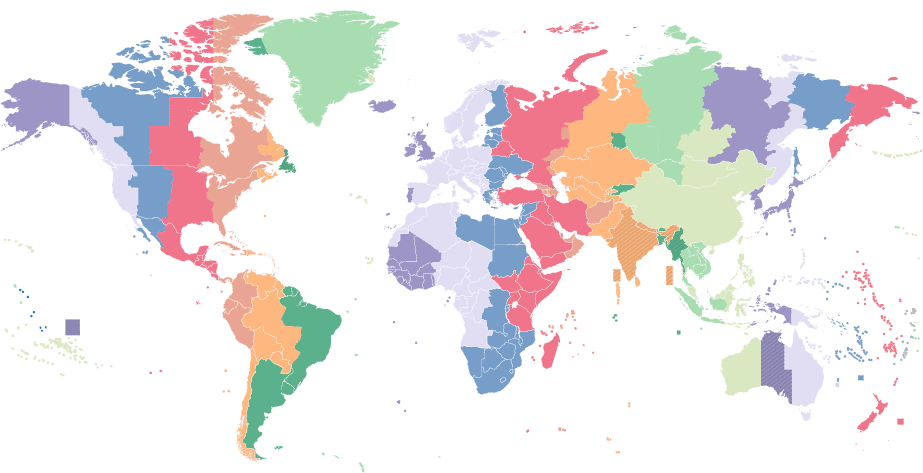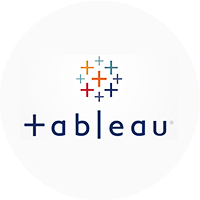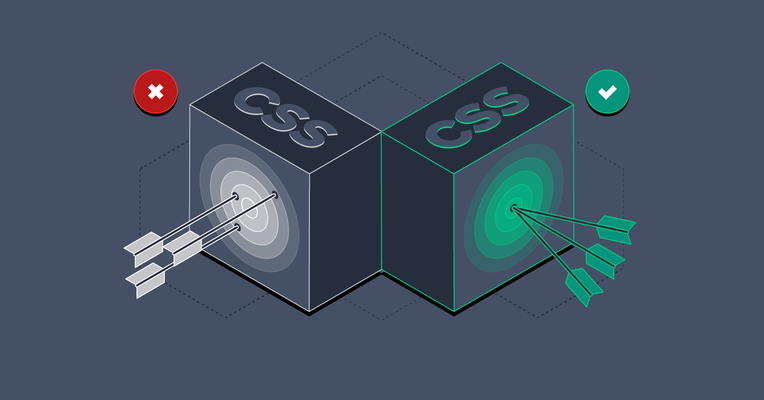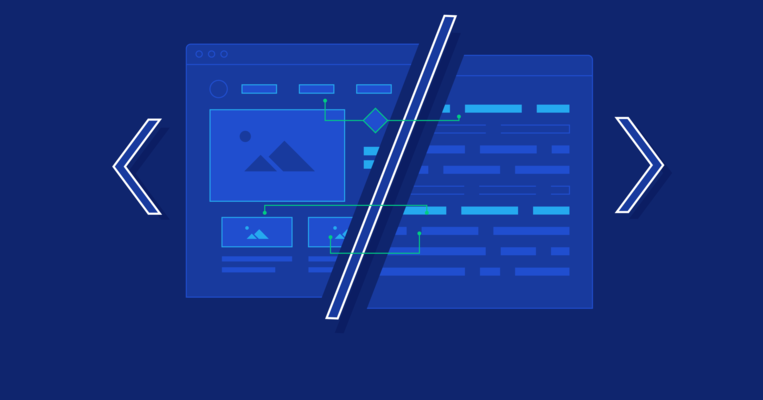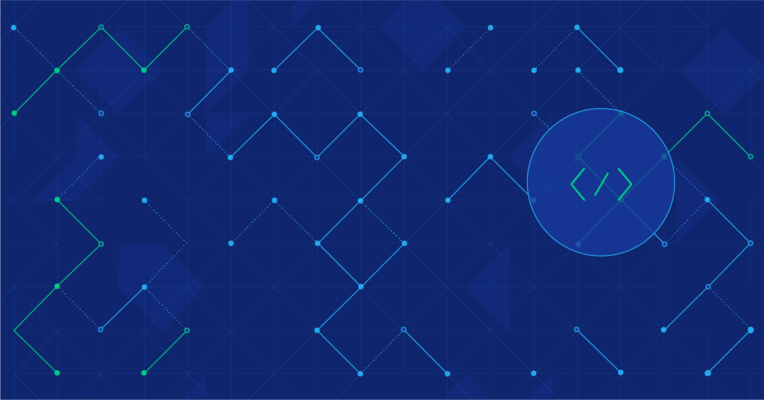Demand for Tableau Developers Continues to Expand
The business intelligence (BI) and analytics market is booming, projected to grow at a CAGR of 11.11% from 2024 to 2030 and reach over 65 billion USD. Tableau is one of the most popular BI tools available to organizations looking to derive actionable insights from their data and is known for its powerful data visualization capabilities. Forbes recently ranked Tableau as third on its list of technical skills with growing job demand, citing a 1,581% increase.
In such a competitive environment, hiring the right Tableau developer to transform complex data sets into clear, interactive visualizations has become increasingly difficult. Moreover, finding a qualified Tableau developer involves more than just identifying someone who can use the software. The ideal candidate must possess a deep understanding of data structures, database management, and business intelligence principles. Additionally, they should be adept at storytelling with data, enabling stakeholders to make informed business decisions based on their visualizations. Tableau developers working alongside a development team can ensure seamless integration of analytics within business applications and workflows.
This hiring guide aims to help you navigate the challenge of finding and evaluating Tableau developers. We will provide insights into the essential skills that distinguish top-tier developers, outline strategies for identifying the ideal candidate for your specific needs, and offer practical tips for writing effective job descriptions and conducting insightful interviews.
What Attributes Distinguish Quality Tableau Developers From Others?
Hiring a quality Tableau developer can significantly enhance a company’s ability to visualize and interpret data, driving better decision-making and business performance. A skilled Tableau developer brings a combination of technical prowess and business understanding that sets them apart from other practitioners.
Core Skills for Tableau Developers
Candidates should have foundations grounded in Tableau software and data engineering, visualization, analysis, and management skills. The best Tableau experts have in-depth knowledge of business intelligence and can communicate with stakeholders with ease.
Proficiency in Tableau software: A top-tier Tableau developer must have an in-depth understanding of Tableau Desktop, Tableau Server, and Tableau Cloud. This includes the ability to create complex dashboards, customize visualizations, and optimize performance. They should also be adept at using Tableau’s advanced features, such as calculated fields, parameters, and Tableau Prep, for data cleaning and preparation. Experience with QlikView is also valuable, as many organizations leverage both tools for business intelligence needs.
Data visualization expertise: A Tableau developer’s core task is to transform raw data into clear, compelling visualizations. Tableau experts know how to choose the right chart types, design intuitive dashboards, and use visual best practices to highlight key insights. They understand how to make data visually accessible and actionable for various stakeholders.
Strong analytical skills: Beyond creating visual representations of data, a great Tableau developer must be able to analyze and interpret the data to uncover patterns and insights. This involves a strong understanding of statistical methods and data analysis techniques, including leveraging Tableau’s built-in statistical functions, performing exploratory data analysis (EDA), and using regression or machine learning (ML) models to detect data trends. Experience with BI frameworks can enhance analytical capabilities by standardizing best practices in reporting and data governance.
Database management abilities: Developers must efficiently extract and manipulate data from different sources, ensuring that the data used in Tableau visualizations is accurate and up to date. Candidates should have expertise in SQL, familiarity with relational databases (e.g., MySQL, SQL Server, Oracle, or PostgreSQL), and knowledge of data warehousing concepts and extract-transform-load (ETL) processes.
Programming knowledge: Along with mastery of SQL, familiarity with programming languages like Python or R can be a significant asset for Tableau experts. This knowledge allows developers to perform more sophisticated data analysis and integrate Tableau with other analytical tools and platforms.
Understanding of business intelligence: A strong grasp of BI principles helps Tableau developers align their work with the organization’s broader goals. They should be capable of understanding the business context of the data, identifying key performance indicators (KPIs), and tailoring visualizations to meet specific business needs.
Visual storytelling and strong communication skills: Tableau developers often work closely with other team members, including data scientists, analysts, and business users. They must be able to explain complex data concepts in simple terms and present their findings to both technical and nontechnical stakeholders. The ability to tell a compelling story with data ensures that insights are not just seen but understood and acted upon. Quality Tableau developers pay close attention to detail, ensuring that their visualizations are error-free and their data analyses are reliable.
Proficiency in other data tools and platforms: Tableau developers will need to integrate with various data tools and platforms to ensure seamless data flow across systems. These integrations enhance data accessibility and usability across organizations, supporting comprehensive data-driven decision-making. Developers can connect Tableau with:
-
Databases like SQL Server, Oracle, and MySQL for data extraction and manipulation.
-
Cloud platforms such as AWS and Azure that leverage scalable computing power and storage.
-
Statistical tools in R and Python for advanced data analytics.
-
APIs that automate data refreshes and embed Tableau visualizations into web applications.
Tableau’s Role in a Broader Data Ecosystem
While Tableau stands out as a leading data visualization tool, its full potential is often realized when integrated into a broader data ecosystem. For example, Tableau can complement Power BI, another powerful data visualization tool, by offering advanced customization and interactivity in complex visualizations. Tableau analysts often work closely with data science teams, leveraging predictive models and machine learning insights to create dashboards that drive actionable business decisions. Additionally, Tableau’s compatibility with Microsoft products, such as SQL Server and Azure, enhances its value in organizations that rely on Microsoft’s suite of enterprise solutions. By effectively managing data pipelines—from extraction and transformation to visualization—Tableau analysts ensure that data flows seamlessly, enabling stakeholders to draw insights from clean, reliable sources. This synergy makes Tableau an integral part of any modern data strategy.
Complementary Skills for Tableau Developers
Assisting with integrations, Tableau developers benefit significantly from a range of complementary technical skills that enhance their ability to manipulate data, perform advanced analytics, and customize visualizations. Each skill contributes to optimizing business intelligence solutions and improving decision-making processes.
SQL: SQL proficiency is essential for Tableau developers to efficiently query databases, extract relevant data, and perform data manipulations directly within Tableau. Understanding SQL allows developers to streamline data preparation processes and facilitate data governance and security protocols, enhancing data integrity across visualizations and reports.
Python: Python can be used to enhance and customize Tableau through scripting and APIs. Its advanced statistical capabilities help developers extend Tableau’s functionalities by automating data workflows, conducting complex statistical analyses, and integrating ML models into visualizations. Candidates skilled in Python can enhance the depth of insights derived from Tableau dashboards, enabling more sophisticated predictive analytics.
R: Similar to Python, R provides powerful tools for data manipulation, statistical modeling, and generating complex visualizations that Tableau does not directly support. Integrating R with Tableau is particularly beneficial for industries requiring robust predictive analytics, such as finance and healthcare, where precise forecasting and risk assessment are critical for business strategy.
JavaScript: JavaScript proficiency empowers Tableau developers to embed Tableau visualizations seamlessly into web applications. JavaScript enables developers to build personalized, responsive dashboards that cater to specific user needs and preferences, thereby increasing the engagement and usability of Tableau solutions across diverse business contexts.
ETL tools: ETL tools are essential for Tableau engineers involved in data integration and transformation processes. Tools like Alteryx and Informatica streamline data preparation workflows by automating ETL tasks and ensuring data consistency across Tableau visualizations. By leveraging these tools, developers can accelerate data processing speed, reduce manual errors, and maintain data integrity from multiple sources.
API integration: API integration skills allow Tableau developers to extend platform capabilities, automate data updates, and integrate external data sources seamlessly into visualizations. For example, developers can enrich dashboards with real-time data feeds, providing dynamic, up-to-date visualizations that reflect the latest business metrics and operational trends.
A Tableau developer with these attributes will not only create visually appealing and insightful dashboards but will also contribute significantly to a company’s data-driven culture. By understanding and prioritizing the right blend of technical, complementary, and soft skills, you can identify candidates who will excel in their roles and deliver substantial business value.
How to Identify the Ideal Tableau Developer for You
Finding the ideal Tableau developer requires a strategic approach that begins with a clear understanding of your specific needs and business goals. Before you begin the hiring process, conduct an internal assessment to identify any skill gaps within your current team. Do you need someone to build dashboards, manage data integration, or perform advanced data analysis? Is your current team supported by senior Tableau developers, or are you starting from scratch?
Choosing Between Junior, Mid-level, and Senior Tableau Developers
Along with evaluating your current team’s technical gaps, you’ll want to assess your project complexity, budget, and timeline when deciding between junior and senior talent.
Junior developers typically have up to two years of experience. They are often proficient in basic Tableau functionalities and can create standard dashboards and reports. They are ideal for projects with well-defined requirements and straightforward data visualization needs. Hiring a junior talent is cost-effective when you need support with routine tasks and have senior team members available to provide guidance.
Mid-level developers usually have two to five years of experience. They possess a deeper understanding of Tableau’s advanced features and are capable of handling more complex data visualization projects. They can work independently, optimize dashboards, and integrate data from multiple sources. Mid-level developers are suitable for projects that require a balance of technical proficiency and business acumen.
Senior developers have more than five years of experience and are experts in data visualization and BI. For projects involving complex data integration, advanced analytics, or high-level strategic insights, investing in a senior developer is more appropriate. They often have experience with data architecture, project management, and data governance. While senior developers command higher salaries, their expertise can lead to more effective and innovative solutions, and they are often necessary for high-impact projects.
Finally, consider whether your need is long term or short term. For long-term projects or ongoing data visualization needs, investing in full-time, senior talent can provide continuity and a deeper understanding of your business context. For short-term projects or one-off tasks, a junior developer or part-time contractor might be sufficient.
Specific Tableau Skills for Common Use Cases
You may wonder, “What industries benefit most from hiring Tableau developers, and why?” A wide variety of industries benefit significantly from hiring Tableau developers, especially sectors that analyze large volumes of data:
- In finance, Tableau helps in financial forecasting and risk analysis.
-
Healthcare uses Tableau for patient analytics and operational efficiency.
-
Retailers leverage Tableau to understand customer behavior and optimize inventory management.
- In manufacturing, Tableau aids in process optimization and supply chain analytics.
Narrow down the candidate pool to focus on applicants with experience and business understanding relevant to your specific industry. Next, you should consider developer specializations, as there are certain common tasks Tableau engineers and analysts perform:
- For projects involving significant data cleaning and preparation, look for candidates with experience in Tableau Prep and SQL. These skills help developers handle data preprocessing effectively.
- If your focus is on creating interactive dashboards for user engagement, seek developers with a proven track record of designing user-friendly and visually appealing dashboards. Experience with Tableau’s advanced visualization features is a plus.
- For real-time data visualization needs, look for candidates with experience in integrating Tableau with real-time data sources and expertise in optimizing performance for live data updates.
- If your project involves advanced analytics (e.g., predictive data modeling or machine learning), ensure the candidate has programming skills in Python or R and experience integrating these tools with Tableau.
Clearly defining your business objectives, industry needs, and required developer level will enable you to make more informed hiring decisions. A well-chosen Tableau developer will not only meet your immediate data visualization requirements but also contribute to your organization’s long-term data strategy.
How to Write a Tableau Developer Job Description for Your Project
When writing a job post for a Tableau developer, start by clearly defining the role and its responsibilities. Introduce the project technologies, timeline, and scope, and specify the level of experience required—junior, mid-level, or senior—based on technical complexity and expected pricing.
Next, outline the core technical skills required, such as proficiency in Tableau Desktop, Tableau Server, and SQL, as well as experience in data visualization, data analysis, and business intelligence. Include soft skills like communication, problem-solving, and the ability to collaborate effectively with various stakeholders. You should also mention any project-specific tools or programming languages needed, such as Python or R.
Potential job titles for someone with Tableau skills may vary, so you’ll want to specify your software development needs and the developer level desired (e.g., junior Tableau developer, part-time BI analyst, data visualization specialist, senior data analyst). By clearly outlining the required attributes in your job description, you can attract qualified candidates who are well-suited to meet your project’s data visualization and analysis needs.
What Are the Most Important Tableau Developer Interview Questions?
Interviewing a Tableau developer involves evaluating both their technical skills and their ability to apply those skills to real-world business problems. You may use the following example questions as a starting point in combination with additional data analysis or business intelligence interview questions.
Explain how you would approach designing a dashboard for a new business project.
This question is a great introduction to the candidate’s Tableau experience and skill level; it assesses their understanding of business requirements and their ability to translate user needs into effective visualizations, a skill critical for any Tableau expert. The candidate should discuss gathering requirements from stakeholders, understanding the KPIs to be tracked, and designing the dashboard to highlight these KPIs clearly. While each developer may take their own unique approach, all candidates should mention the importance of user experience and iterative feedback.
Describe a complex problem you solved using Tableau and the impact it had on your organization.
This question is a good follow-up to get more details on a candidate’s real-world experience using Tableau. Look for detailed explanations of the problem, the analytical approach taken, and the Tableau features used. The candidate should highlight the positive impact their solution had on decision-making or business outcomes.
Can you describe a time when you had to clean and prepare a large dataset for Tableau? What tools and techniques did you use?
Data cleaning and preparation are critical for accurate visualizations. This question evaluates the candidate’s practical experience with data wrangling and their familiarity with commonly used tools. A strong candidate will describe specific techniques, such as data blending, handling missing values, and optimizing data formats. They should demonstrate familiarity with best practices in data preparation and tools like Tableau Prep, SQL, or Python.
How do you ensure that your Tableau dashboards perform well with large datasets?
The candidate should mention techniques like data extracts, efficient filter use, database indexing, and reducing calculation complexity. They should also show an understanding of balancing performance with functionality. Performance optimization is essential for usability, especially with large datasets, and this question is especially important for big data industries like banking, healthcare, and e-commerce.
Can you explain the difference between a live connection and an extract in Tableau? When would you use each?
Understanding extracts and live connections is fundamental to using Tableau Cloud effectively. This interview question assesses the candidate’s ability to choose the right approach, and they should provide examples of when each is appropriate. The candidate should explain that a live connection directly queries the data source in real time and is suitable for live data updates, while an extract is a snapshot of the data that needs to be manually refreshed for updates. However, extracts improve performance and are useful for stable datasets.
Why Do Companies Hire Tableau Developers?
Companies hire Tableau developers to harness the full potential of their data, transforming it into meaningful insights that drive business growth. By leveraging Tableau’s powerful data visualization capabilities, these developers help organizations uncover trends, patterns, and insights that might otherwise go unnoticed. Their proficiency in data preparation, SQL, and business intelligence ensures that data is accurate, reliable, and effectively utilized. Moreover, Tableau developers excel at optimizing dashboard performance, making real-time data accessible and actionable for stakeholders.
Tableau developers are also masterful visual storytellers. They explain data concepts clearly to both technical and nontechnical audiences and foster a data-driven culture within the organization. Their ability to align data visualizations with business objectives ensures that every dashboard and report serves a strategic purpose. Tableau experts offer organizations a competitive edge by simplifying complex data and supporting informed decision-making that propels innovation.
